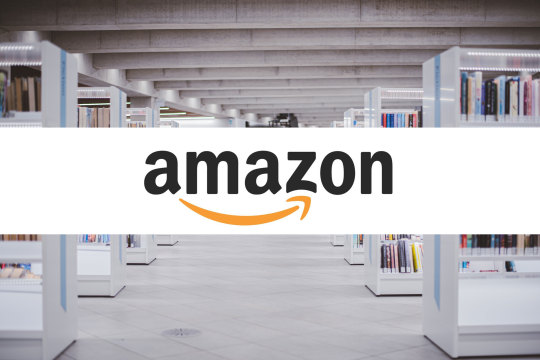11,000 Call on Amazon to End War on Libraries
Amazon, the bookselling & data giant that owns Kindle and Audible, is again under fire—this time for denying libraries access to digital books it publishes, despite the pandemic.

For Immediate Release: Tuesday, November 24 Contact: Lia Holland, press@fightforthefuture.org
Last week, more than 11,000 people signed a petition calling for Amazon to allow libraries to purchase its digital books, and demanding that they cease weaponizing the data that they selectively provide to other publishers.
As the pandemic surges, many libraries are closing their doors and cancelling the lending of physical books. Digital services such as ebooks and audiobooks remain available, but not for any titles that Amazon owns.
Amazon, the bookselling & data giant that owns Kindle, Audible, and Goodreads, refuses to let libraries lend any ebook it publishes, or any audiobook it creates. During the pandemic, checkouts of ebooks from libraries are up 52 percent.
“Amazon’s unchecked and disastrous monopoly is threatening the future of human knowledge and literacy. It is clear to anyone who knows how Amazon operates that public libraries are in danger,” said Lia Holland (she/they), an activist with digital rights organization Fight for the Future. “Amazon’s goal is to create the false perception that public libraries are bad for book sales, so that Amazon Kindle and Audible can supplant libraries and cement a monopoly that would remove the possibility of any competition in the digital book marketplace. Children and low income readers of all ages should never be denied accessible books because they can’t afford to pay Amazon.”
Industry data suggests 75 to 90 percent of one major book publisher’s ebook sales are made through the data-aggregating Amazon Kindle. In 2019, one of the “big five” publishing houses came under fire for asserting, based on data only Amazon could provide, that libraries were “cannibalizing” their sales, and instituting an embargo on newly released e-book sales to libraries. That publisher cancelled their plans after public outcry.
“Amazon’s behavior here will ultimately hurt all of publishing, but in the short term, right now, it is harming low income people, and disabled people,” Holland continued. “Digital books open new realms of accessibility for the reading experience, everything from being able to change font to help with dyslexia to audiobooks for deaf library patrons. To deny these books to public libraries simply because they are in a more accessible format is unconscionable. Especially in this era of disinformation, maintaining access to knowledge and information is an essential investment in the future of humanity—not something that only those who can afford to pay Amazon should have.”
Petitioners also called for a government investigation into Amazon’s monopoly power, and legislation that would enshrine the right of libraries to purchase and loan all books, whatever their format.

